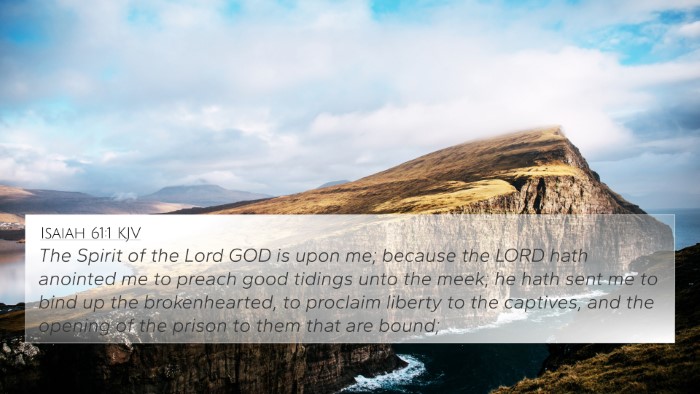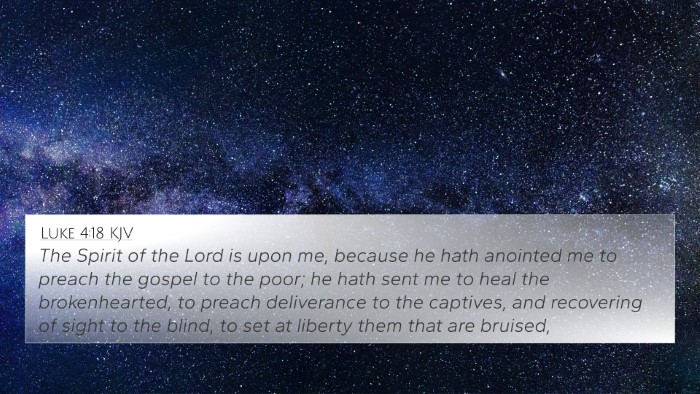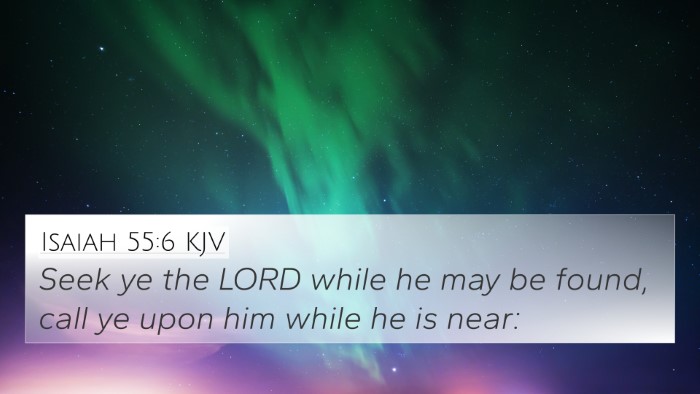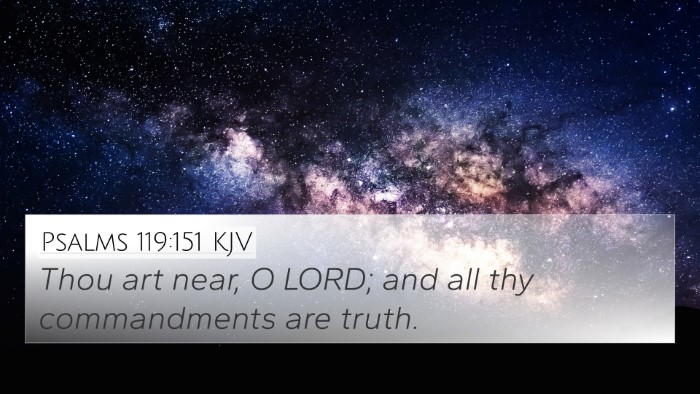Psalms 34:18 - Understanding the Verse
Psalms 34:18 states, "The Lord is near to the brokenhearted and saves the crushed in spirit." This verse encapsulates a deep and profound message about God's compassion and comforting presence during times of distress and sorrow. Let's delve into the insights derived from various public domain commentaries.
Meaning and Interpretation
This verse assures believers that God is intimately aware of their pain and suffering. Matthew Henry emphasizes that the brokenhearted are those who experience a profound sense of grief or loss. The term "brokenhearted" denotes a heart crushed by circumstances, while "crushed in spirit" refers to deep emotional or spiritual turmoil.
Albert Barnes expands on this by defining "the brokenhearted" as individuals experiencing disappointment due to sin or the oppressive weight of life's challenges. He highlights that this verse reflects God's willingness to be present in the moments where hope seems lost.
Adam Clarke points out that God's proximity to the brokenhearted signifies His compassionate nature. He explains that God does not merely observe the suffering; He actively intervenes to provide relief and salvation for those whose spirits are low.
Cross-References to Psalms 34:18
- Psalms 147:3: "He heals the brokenhearted and binds up their wounds." - This verse reinforces the theme of God's healing touch for those in emotional distress.
- Matthew 11:28: "Come to me, all who labor and are heavy laden, and I will give you rest." - Jesus invites the weary to find solace in Him.
- Isaiah 61:1: "The Spirit of the Lord God is upon me, because the Lord has anointed me to bring good news to the poor; he has sent me to bind up the brokenhearted." - This prophetic verse aligns with the mission of comforting those in sorrow.
- 2 Corinthians 1:3-4: "Blessed be the God and Father of our Lord Jesus Christ... who comforts us in all our affliction." - Highlighting God's role as a source of comfort.
- John 16:33: "In the world, you will have tribulation. But take heart; I have overcome the world." - Assurance of overcoming through faith, despite suffering.
- Romans 8:28: "And we know that for those who love God all things work together for good." - An underlying promise of God's ultimate goodness in our struggles.
- Philippians 4:6-7: "Do not be anxious about anything... and the peace of God will guard your hearts and your minds." - Encouragement to trust and receive God’s peace during hardships.
Thematic Connections
The verse connects with several themes throughout the Bible, including divine comfort, the nature of God as a refuge, and the relational aspect of our struggles. The brokenhearted mentioned in scripture represent not just physical pain but include emotional and spiritual anguish, showcasing how God engages with His people in their distress.
This verse also serves as a thematic link to concepts of repentance and humility. It suggests that a recognition of one's brokenness can lead to salvation and healing—a transformative experience at the heart of the Gospel message.
Practical Application and Insights
Understanding Psalms 34:18 offers encouragement to individuals facing trials. Here are practical applications drawn from the verse:
- Finding Comfort: Recognize that God is near during difficult times; seek His presence through prayer and scripture.
- Community Support: Share your burdens with a faith community, as they can be instruments of God's comfort.
- Encouragement to Others: Be a source of encouragement and comfort to those experiencing heartache by reminding them of God's promises.
Conclusion
Psalms 34:18 is a profound promise for all believers. In moments of sorrow, it reassures us of God's nearness and His compassionate response to our brokenness. The connection between this verse and others throughout Scripture illustrates a cohesive narrative of hope, healing, and redemption.
By engaging in a comparative Bible verse analysis, we can understand how interconnected the themes of comfort and salvation are in Scripture. This verse serves not only as an individual promise but also as part of a larger inter-Biblical dialogue, highlighting the timeless nature of God's care for the vulnerable and distressed.
















